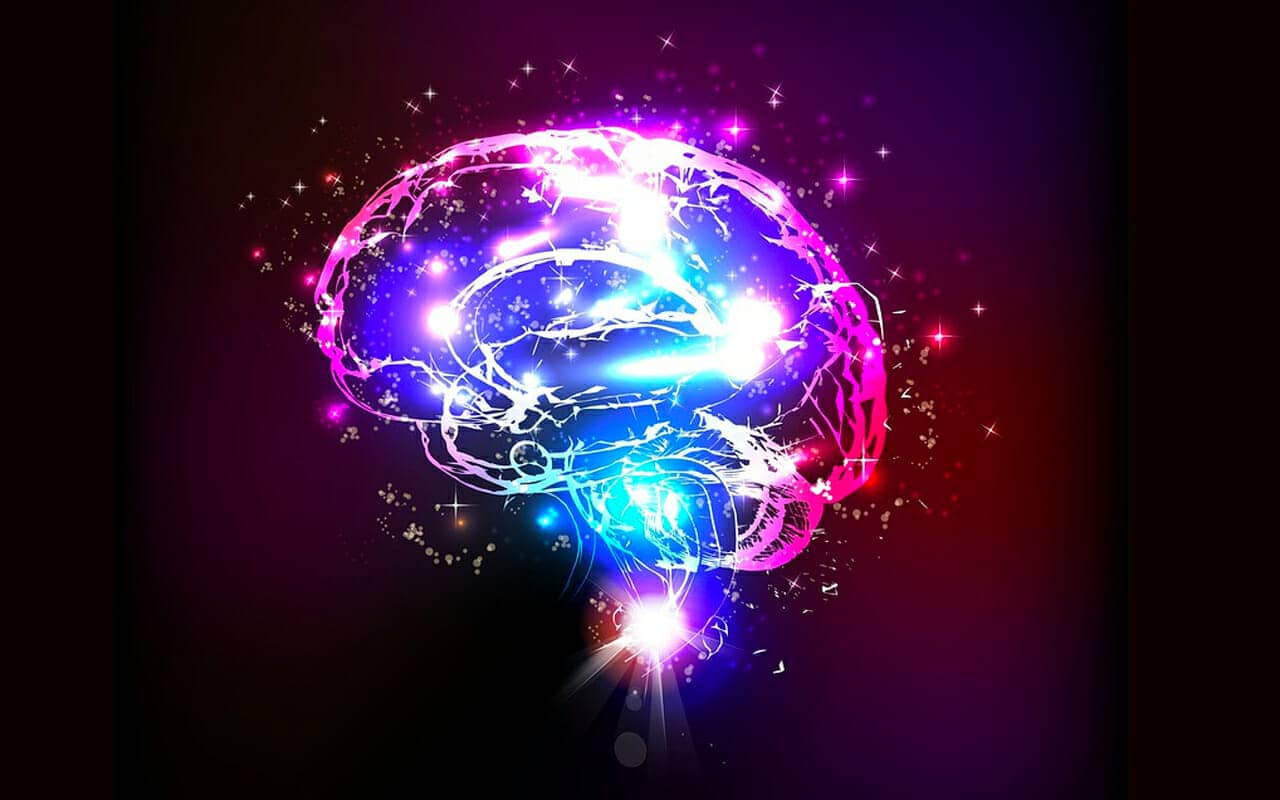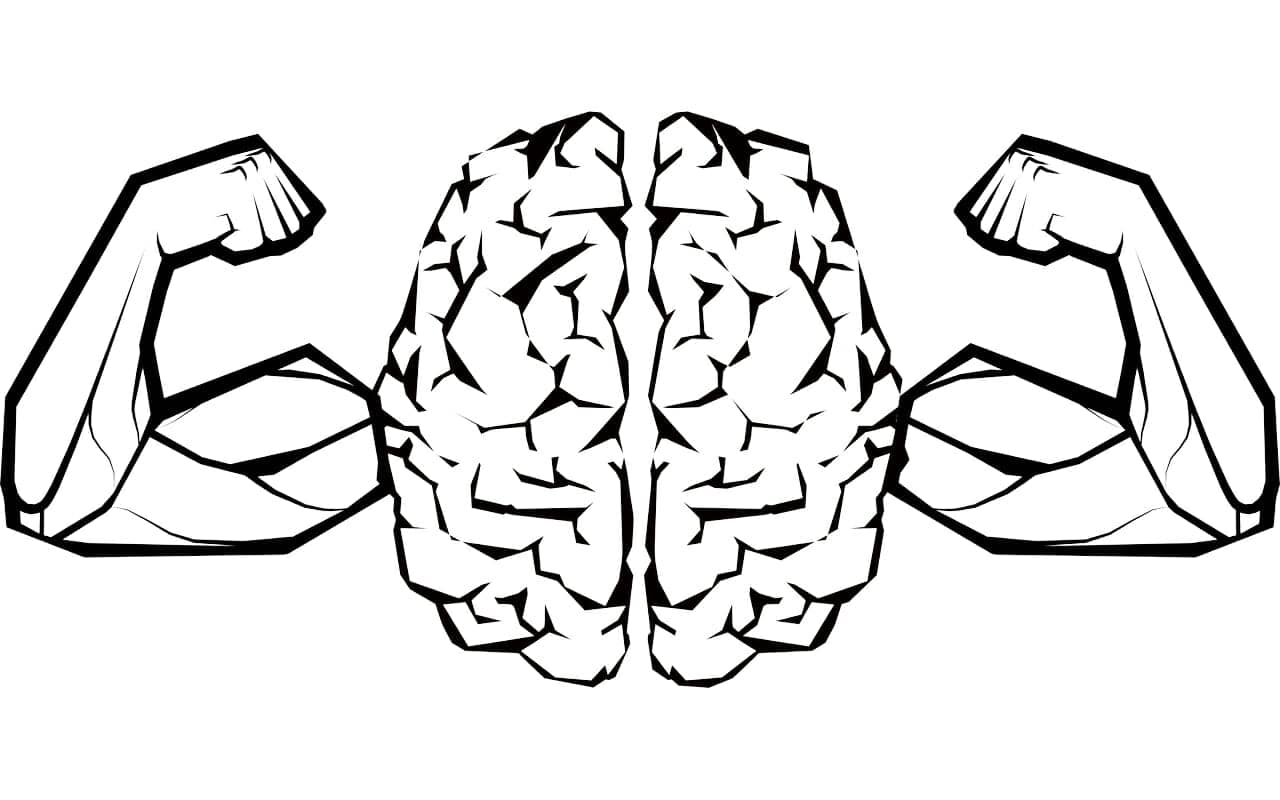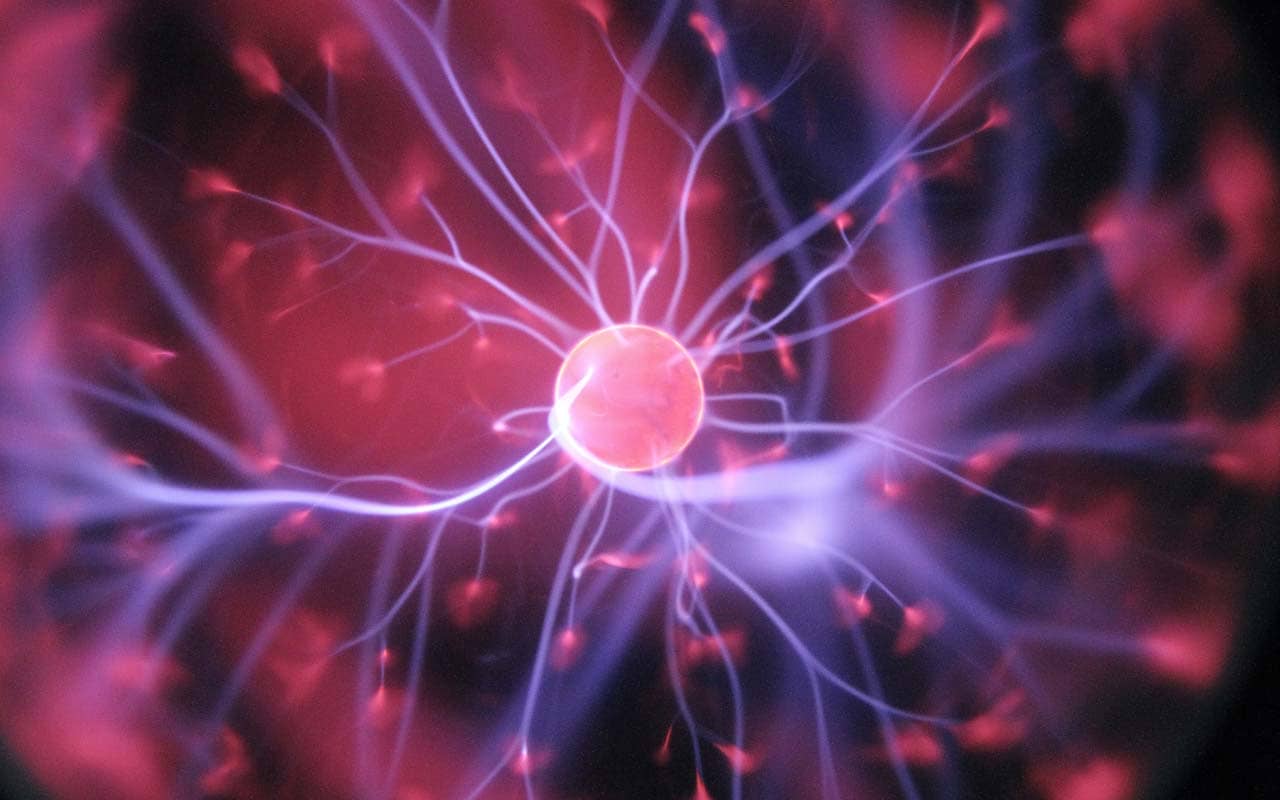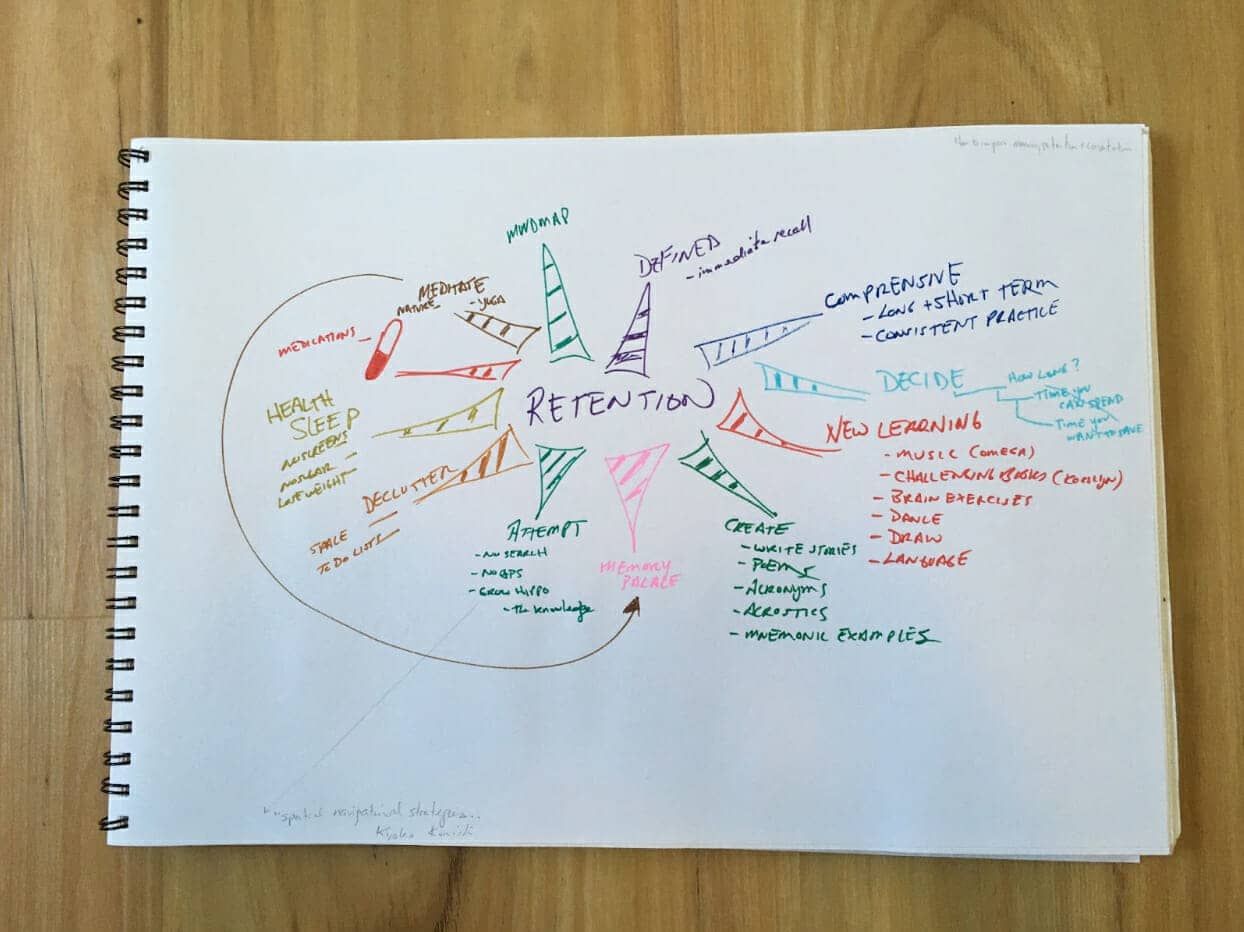Podcast: Download
Subscribe: Apple Podcasts | RSS
 Is it a sign of genius if you sound like a walking encyclopedia during a conversation?
Is it a sign of genius if you sound like a walking encyclopedia during a conversation?
Or are you just annoying?
How about being able to rattle off the names of every political leader in the history of your country? And their key contributions?
Although such abilities might be signs of extreme intelligence, they could indicate something else.
In my view, we need to be careful when throwing around terms like “high intelligence” and “genius.”
Many people tend to have tunnel vision and think of genius as a very narrow repertoire of abilities.
But as you’re about to discover, true signs of a high IQ operate quite differently.
So let’s dive into the most common signs of true genius and pick up some tips on how to improve your intelligence along the way.
What Does It Mean to be a “Genius?”
Ever heard of a “genie in a bottle”? Although the word “genius” is probably not directly related to the Arabic Jinn where this mythical idea comes from, there are similarities between the words.
Our word genius in English descends from the Latin for “guardian deity or spirit which watches over each person from birth.”
It also can mean wit and talent, or even generative power.
And that’s what we usually mean today: a genius has some kind of powerful intelligence or enhanced ability to create something or perform with skill.
The individual might display linguistic intelligence, musical mastery or even draw upon synesthesia or hyperphantasia they have such conditions.
The Science Behind Finding Signs of Genius
Right or wrong, there’s a lot of folk wisdom around what genius means. The term is thrown around fast and loose and a lot of people get duped into thinking they are less intelligent as a result.
But scientists have spent quite a lot of time and energy trying to nail down where exactly the brain produces intelligence. Einstein’s brain was preserved for study, and reportedly even stolen at one point.
Scientists noted a certain thickness to parts of Einstein’s brain, but this probably had more to do with his deliberate practice of music than physics.
In the 80s, Norman Geschwind and Albert Galaburda created a watershed of ways to think about how intelligence develops when they dug into the topic in Cerebral Lateralization. These neurologists demonstrated the different ways the left and right hemispheres of the brain develop and theorize why some people have larger right hemispheres than others.
Frankly, this data is very important to consider in addition to studying people with the highest IQ scores.
“Reverse Psychology”
Often, scientists need to look at brains that have undergone traumatic brain injury to help them draw conclusions about how different areas of the brain related to intelligence.
That, or they study the brain scans of neurodiverse people experiencing autism, savantism or even a condition called hyperthymestic syndrome that creates the illusion of photographic memory.

The most recent studies of chess players, for example, have shown no special transference of their playing skills to intelligence in other realms. But you’d think there would be, especially when using memory techniques for chess. Aren’t grandmasters trained to make critical decisions?
Yes, but that doesn’t mean they transfer to any other aspect of life. Now that we have more data and better ways of parsing it, earlier conclusions about chess players and enhanced critical thinking abilities are no longer considered true.
In other words, if you want to increase your IQ, it’s helpful to look at many examples and focus your attention on activities that do transfer. And since the ego is involved when trying to improve your intelligence, you’ll need to overcome many critical thinking barriers.
To help you with that, let’s look closer at the different ways our society thinks of genius and “reverse engineer” how we can improve our own minds.
7 Signs of High Intelligence That Could Indicate Genius
As we go through this list, there’s no order of importance to consider.
However, each of the genius traits I’ll cover have something to tell us about how we can make ourselves smarter.
Let’s dive in!
One: Intense Interest
In a 1992 essay, “Why Children Follow in their Parents’ Career Footsteps,” Laband and Lentz pin everything on how kids observe their parents. Social forces like economic potential by going into other fields plays a much smaller role.
Laband and Lentz even argue that genetics isn’t nearly as powerful in determining a child’s future career. This conclusion is different than Francis Galton’s notion of Hereditary Genius. Galton thought genetics was so important, he argued for eugenics.
Want to be a genius?
Forget about nature vs. nurture. If you have an intense interest in something, that’s a sign you could be a genius in that field. Pursue it.
Part of developing higher intelligence comes down to looking your situation in the face, acknowledging it and following your dreams anyway. Beethoven, Leonardo da Vinci, Galileo, Bruno, Darwin, Tolstoy… all of the great writers, artists, musicians and scientists we hold in high regard hold in common two things:
- They had an intense interest in their chosen field
- They went against all social oppositions stacked against them to pursue their passion
In other words, genius is not a thing. It’s an action and it lies in the choice to pursue your dreams.
If this bold claim makes sense to you, but you still feel stuck, try these mental strength exercises.
Two: Interrogate the Truth
Whereas some people mindlessly join groups like Mensa without taking a second to look at its history and politics, the comedian Jamie Loftus infiltrated their ranks and exposed what’s really going on.
(Spoiler Alert: On the final episode of her podcast, Loftus reveals that members think intelligence is fixed, which science and critical thinking reveals cannot be the case.)
You don’t have to do this kind of immersion journalism yourself to develop higher intelligence. The point is to poke around. Ask philosophical questions. Don’t take things at face value.
Asking questions is one of the smartest things you can do. Who knows? You might find tremendous value in a self-described “high-iq” group like Mensa. But you might also wonder why, if they’re so intelligent, they need to take down their critics as they did to popular YouTuber, Flammable Maths?
Wouldn’t such high IQ people use their intelligence to tackle anything they found uncouth in such social commentary in a more distinguished way?
In reality, there are all kinds of people who want to teach you how to be smarter. A lot of them rely on you to be naive and won’t help you interrogate the truth.
As someone in this business myself, I still find the depths to which certain charlatans will go shocking.
And with AI helping people scan websites and “memory hole” any criticism of their business interests, being willing to interrogate the truth (and admit any wrongs along the way) is one of the biggest signs of genius out there.
Three: Slow Logic, Not “Speed Rationality”
Humans are computing machines. Information comes in, our brains examine the symbols and we spit out a response.
Our ancestors noticed this and early on in history tried to help us slow down. For example, Ramon Llull developed memory wheels for improved critical thinking and enhanced memory.
A 90 BCE book called Rhetorica Ad Herennium helped speakers use logic and reason better, especially in court. Instead of rapid fire responses a debater might regret, this book helps you think structurally through how arguments work. When you respond, you use structure to explain and validate your point.
Our world is filled with people who sound smart, but they’re just computing quickly. It’s word salad, not genius.
Look for people who consider their thoughts, speak in measured tones and work on doing so yourself.
Four: Courage For The Unorthodox
I believe we all have some kind of attraction to “weird” and unconventional ideas.
But often we suppress them out of fear that we’ll be judged.
When you use the slow rationality tip I’ve just shared, however, you can be interested in even the strangest things and explain yourself in a way the endears you to the masses.
Look at Stephen King. Sure, he’s got his detractors. But overall, he’s into some dark and bizarre stuff. And he sells millions of books, millions of people watch movies based on them and his interviews on YouTube rank in the millions of views.
All because he has the courage to lean into strange and unorthodox ideas.
Five: Embrace Mistakes
Learning involves taking on chaos. You find structure and paths along the way by shining light into the darkness.
So many people email me that they’re afraid of making mistakes. Or they display an unrealistic need to understand the Memory Palace technique I teach “correctly” the first time they use it.
Avoiding mistakes is not only impossible. It’s not even desirable. Every learning cycle needs errors.
Geniuses also need to run into learning plateaus. And to overcome them, the best memory athletes we have use reflective thinking and journaling. Memory athletes like Johannes Mallow use journaling in a particular way to identify errors and weak spots in order to fix them.
Six: Teach Yourself
In Genius: A Very Short Introduction, Andrew Robinson quotes the 19th century polymath Thomas Young.
After studying at three of the most famous universities in the world, Young concluded:
Whoever would arrive at excellence must be self-taught.
Part of Young’s critique of the universities involved the quality of the students. He observed that people seemed to go to school to be motivated by outside factors
But the way you can find your inner genius is to find motivation within yourself. Once you’ve done that, there’s more information on the Internet than ever before. As Scott Young has demonstrated, it’s possible to get degrees at major universities without attending them. He calls his self-study process, “Ultralearning.”
Seven: Control Your Environment
So many people fail to experience the full potential of the genius they already have because they cram or study in highly distracting environments.
I used to study on the bus all the time myself, but it was never ideal. By doing some self-analysis and structuring my time, I quickly worked out the best places to study.
With a bit of scheduling and clever positioning of your body in front of the most important books, anyone can read faster.
When you’re able to reduce distractions, your focus and concentration will automatically go up. As Harry Lorayne pointed out many times during his career, memory starts with attention. So enable yourself to pay focused attention and your genius will automatically go up.
Examples of geniuses who controlled their environment? Einstein in the sciences, just about every artist and philosopher and most students with an edge.
And it’s not just about learning. People with military and martial arts skills are also highly attuned to their environment, and their skills involve and connect with memory and multiple intelligences too.
In fact, one major skill is the skill of being able to learn new skills quickly. That way, you’re able to take your current level of genius and compound it. You can do this through habit stacking or the kind of study program I suggest in Read with Momentum.
Powerful Ways To Improve Your Memory and Raise Your IQ
Now that you’ve discovered the signs of high intelligence and learned how to model them, let’s get into a few practical tricks of the trade.
Practice each of these and you’ll find your smarts soaring.
To master each, all you need to do is start putting them into practice. And now you now all about controlling your time, environment and shutting out anyone who thinks what you’re doing is unorthodox. (Or at least not letting them shut you down.)
Master Your Memory
It’s essential to improve your memory. There are many techniques you can pursue, and here are some of the best:
Don’t worry if exploring these ancient memory techniques makes you feel like a kid again.
That’s another major sign of genius: the ability to play!
Explore Unconventional Learning Techniques
Accelerated learning has so much to offer, even if some of the techniques need a bit of time to explore.
I’m thinking specifically of tactics like:
- Mind mapping
- Enhanced note taking
- Magnetizing your flash cards
- Enhancing Anki
- Advanced spaced repetition
- Using Zettelkasten
The techniques I’ve just listed are used by people keen to use strategic thinking and develop long-term vision. They help formulate big picture overviews and map the territory needed to achieve big goals.
Not only that, but it creates the confidence needed to step into the unknown.
It’s not that geniuses are unafraid. It’s that they temper the fear with robust learning tactics. That way, they can feel nervous and take action anyway.
Nurture Curiosity & Creativity
Someone emailed me recently that he turned one of my many personal mantras into a desktop image on his computer:
Action reveals, Stasis Conceals
I love that this subscriber to my teaching sent this because he has embedded a sign of genius onto a surface he sees every day.
It’s a genius move itself. Memory is a miraculous thing, and well worth training. But that doesn’t mean we shouldn’t create cues.
In fact, the science of context dependent memory strongly suggests that we should make wisdom as visible to ourselves as possible.
Using signs that remind us to operate as our highest possible selves is another form of environmental control. Reminders like these help you continue to be curious and take action on your inherent thirst for knowledge.
It will help you continually take action that introduces and re-introduces you to your unique brilliance.
Embrace Your Genius Traits
Tony Buzan used to say that we are all born genius artists and scientists.
Conditioning through observing our parents, teachers and co-workers beats it out of many of us.
But it doesn’t have to be that way.
You can spot the signs of genius already within you by making a plan right now to start playing more freely and more scientifically with your interests.
Make an unwavering commitment to excellence, but don’t fall prey to perfectionism. Unlock your extraordinary potential by studying more about what you’ve read here today, but not to the point of information overwhelm.
Also make sure that you take action on the suggestions you’ve just encountered. And if you need help with the memory improvement part, get my free memory course now:
Remember: Action reveals.
And so much of genius and higher intelligence is in the action. If not all of it.
Related Posts
- 9 Signs You Need Memory Training And Which Techniques Work
Everyone needs memory training, right? Maybe ... Maybe not. This quick tutorial will help you…
- Memory and Intelligence: Are They Connected?
Memory and intelligence are connected in fascinating ways. Learn all about memory and IQ and…
- Crystal And Fluid Intelligence: 5 Ways to Keep Them Sharp
What is fluid and crystallized intelligence, how are they interrelated and how can you hone…













